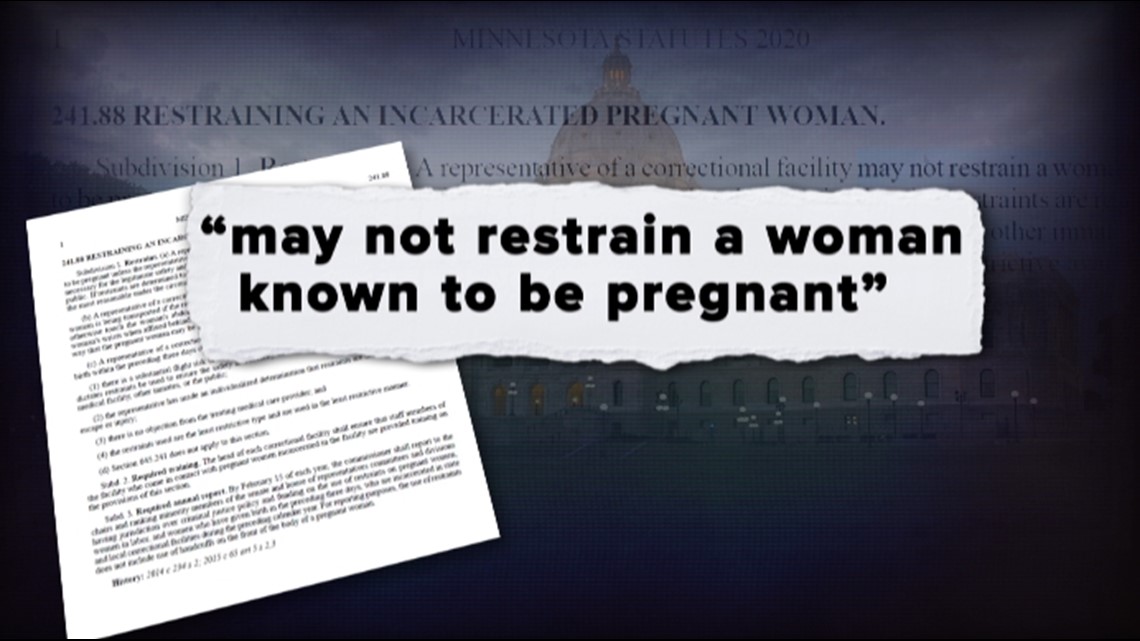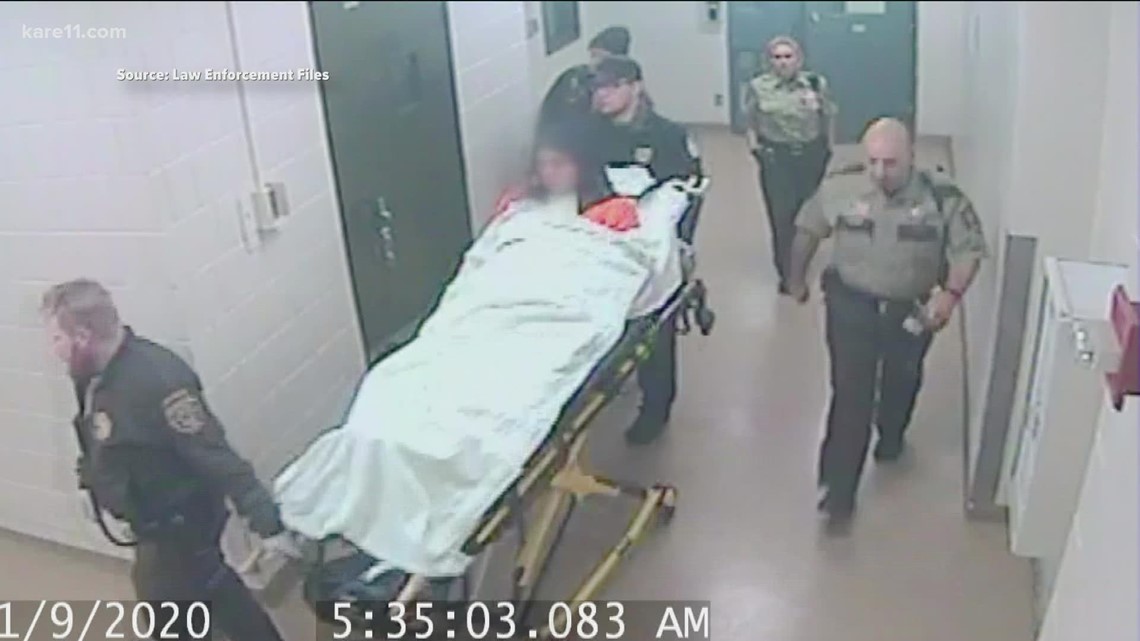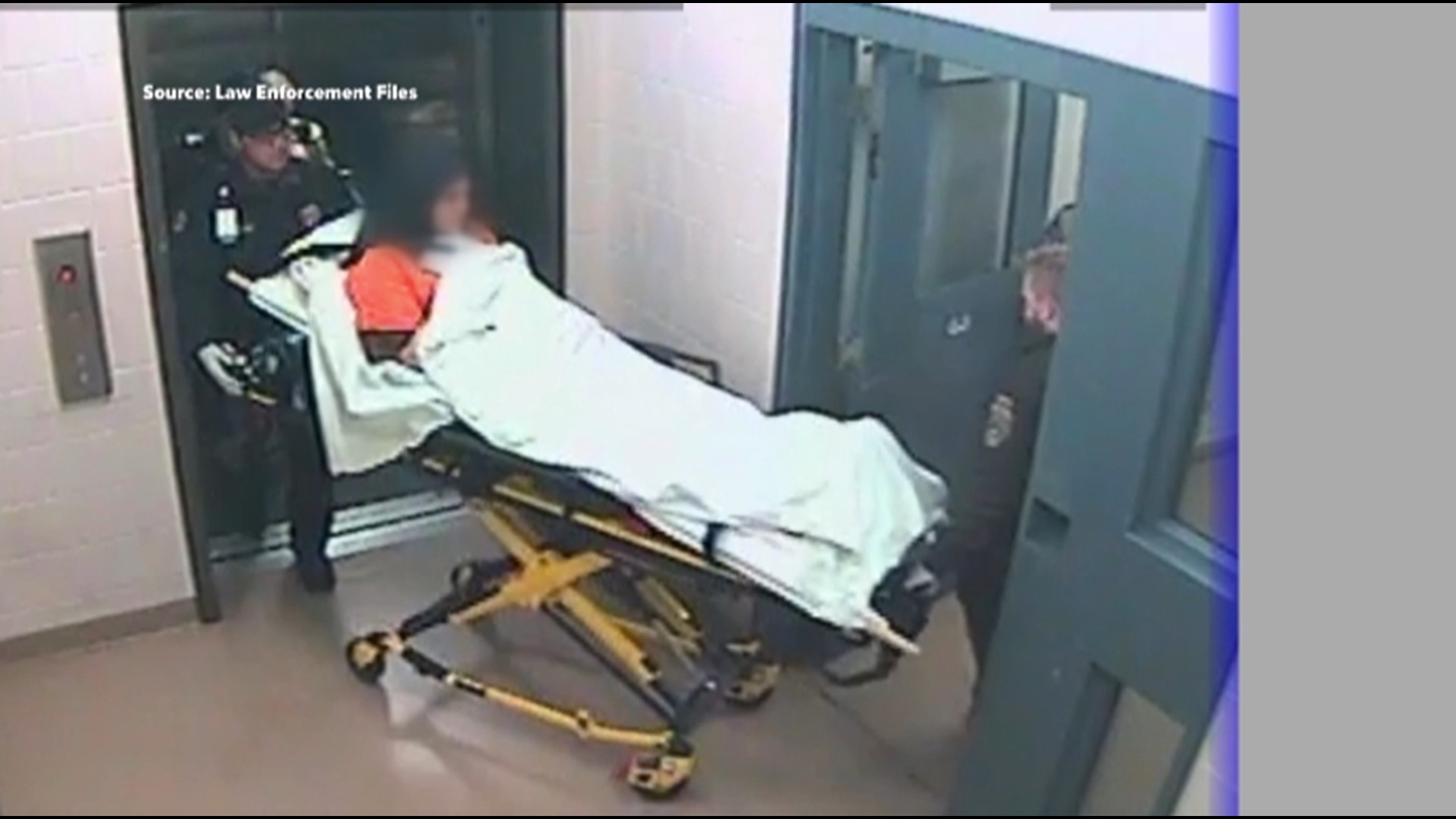MINNEAPOLIS — In late October, a KARE 11 investigation exposed how a pregnant woman, who was never even charged with a crime, had been illegally shackled to an ambulance gurney and her delivery room hospital bed by Hennepin County jailers.
“That was like the worst thing that I ever had in my life,” said Sara, who asked that her full name not be used.
In the hours and days after KARE 11 revealed what happened to Sara, public records show the county rushed to issue directives and re-write policy to bring the county into compliance with state law.
Law is clear
“I was shocked,” said Senator Sandy Pappas (DFL – St Paul).
“The mistreatment of incarcerated women in labor as reported by KARE 11 is disgusting and inexcusable,” Pappas said. “As a mother of three, I can't imagine being isolated, shackled, and unable to exercise bodily autonomy during labor. Stress during labor can be dangerous for both the mother and the child and it is incredibly concerning that these despicable actions were carried out by individuals who hold positions of public trust and authority.”
Pappas said the Legislature was crystal clear when it passed a law in 2014 banning the shackling of pregnant and recently post-partum women, unless there are exceptional circumstances in which the safety and security needs of the mother, correctional staff or public are under threat.


Sara’s case came nowhere close to meeting that high threshold said Pappas and experts, including Rebecca Schlafer, an assistant professor at the University of Minnesota Department of Pediatrics, who reviewed the case for KARE 11.
Hennepin scrambles to rewrite policy
On Oct. 28, the same day KARE 11 published Sara’s story, documents obtained through an open records request show Hennepin County officials rushed to bring their policies and procedures into compliance with state law.
Previously, the Hennepin Department of Community Corrections and Rehabilitation Medical Center Security Watch procedures did not even have the word “pregnant” in them.
Guards were instructed to “Ensure the resident is secured in leg irons at all times,” with no reference to the legally mandated exemption for pregnant women.
The day Sara’s story went public, those procedures were revised.


Now, there is an entire section devoted to handling and treatment of pregnant inmates that instructs, “No restraints will be used on a woman who is known to be pregnant, is in labor, or has given birth within the preceding three days.”
A supervisor is needed to make exceptions to the policy if a guard believes there’s an enhanced security risk.
The Hennepin County Sheriff’s Office has refused to discuss the illegal shackling of Sara. However, records show officials issued an administrative directive one day after Sara’s story aired that, in accordance with state law, no restraint shall be used on known pregnant female inmates. The directive goes into detail spelling out that pregnant inmates may not be shackled to cots, gurneys or hospital beds.
State reforms
KARE’s investigation also revealed how Sara’s shackling case – and others – were not reported to the legislature as required by law.
The Minnesota Department of Corrections (DOC) is required to file annual reports to the state legislature detailing when and why restraints were used on pregnant inmates or women who have given birth in the preceding three days.
Sara’s case was never disclosed.


When presented with KARE 11’s findings, DOC Commissioner Paul Schnell acknowledged that restraint reports given to the legislature have not been accurate due to a loophole in the law and the reporting process.
Schnell said he has closed that loophole, an authority he did not have until KARE 11’s reporting on preventable inmate deaths prompted lawmakers to pass reforms earlier this year.
Schnell said he has now ordered counties to report any instance of restraining pregnant inmates to the DOC within ten days and has changed DOC practices to ensure that each report is investigated and made known to lawmakers.
Senator Pappas said she backs the DOC reforms and she’s also looking into whether further legislative action is needed to ensure compliance with the pregnant shackling law.
“It’s such a dehumanizing thing, it’s like you’re being tied up like an animal,” she said.
This is an ongoing investigation. Were you or someone you know shackled while pregnant in a Minnesota jail? We want to hear from you. Contact investigations@kare11.com.
Watch more KARE 11 Investigates:
Watch all of the latest stories from Breaking The News in our YouTube playlist:

